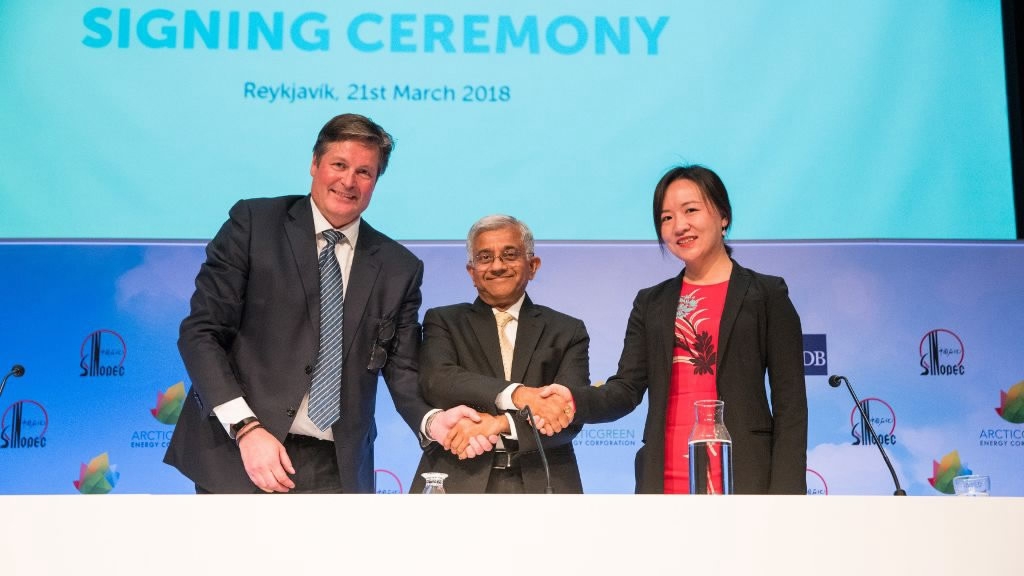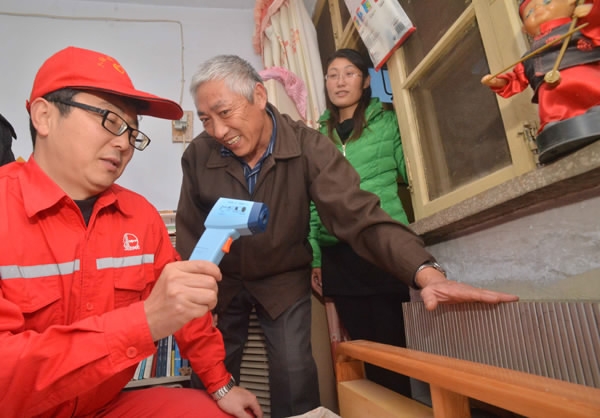
Tech & Sci
14:49, 23-Mar-2018
Geothermal energy to replace coal-based winter heating in China
Alok Gupta

China's fight against air pollution has received a significant boost from the Asian Development Bank (ADB) which is lending 250 million US dollars to Chinese companies to expand geothermal heating.
Coal-based heating is one of the major causes of air pollution in prominent urban areas of the country, including the Bejing-Tianjin-Hebei region.
According to ADB experts, geothermal district heating extracts thermal energy from beneath the earth’s surface for delivery to households and businesses through dedicated pipelines.
“It offers an alternative which is sustainable, stable and cost-competitive to coal and gas, has zero-emissions and can be integrated into existing networks to replace heat sources,” ADB said in a statement.
ADB approved loans to Arctic Green Energy Corporation (AGE) and Sinopec Green Energy Geothermal Company Limited (SGE) on Thursday that will be used to expand environmentally sustainable district heating services in China.
Diwakar Gupta, ADB vice-president for private sector and co-financing operations, said it was a landmark project for Asia.
"Geothermal district heating can provide millions of citizens with safe and stable heat access and at the same time dramatically reduce air pollution and greenhouse gas emissions," he said.
“Our partnership signed today in Iceland, a country whose own energy system shows the potential of geothermal, will deliver much-needed energy solutions that promote truly sustainable development.”
A recent study by the Chinese Ministry of Land and Resources found geothermal resources in more than 300 cities in the country, with the potential power equivalent to two billion tons of coal.

A worker of the geothermal arm of Sinopec Group checks the temperature of a room heated by geothermal power at a house in Zhengzhou, Henan province. /China Daily Photo
A worker of the geothermal arm of Sinopec Group checks the temperature of a room heated by geothermal power at a house in Zhengzhou, Henan province. /China Daily Photo
China is moving from coal to clean fuel
Last year, Beijing switched over to a gas-based heating system, saving more than 9.2 million tons of coal. The fuel replacement drastically reduced air pollution with fine particulate matter PM2.5 and PM10 cut by over 50 percent.
The presence of sulfur dioxide in the city’s air also fell by 52.5 percent compared to the previous year's emissions. Sulfur dioxide is a significant contributor to the formation of PM2.5 particles.
China had set a separate target for two cities – Beijing and Tianjin – under the 26+2 plan. A national-level blueprint was prepared to reduce the PM2.5 level by at least 15 percent year-on-year in 28 cities in and around the smog-prone Beijing-Hebei-Tianjin region from October to March to achieve ambient air quality.
Government data reveals that during peak pollution month, November, last year, PM2.5 in the 28 cities dropped by 37 percent and hovered at 67 micrograms.
Major global cities in Asia and the European Union (EU) are witnessing a rise in air pollution. Haukur Hardarson, SGE vice-chairman, pointed out that how cities are heated or cooled in the 21st century will determine the outcome of the fight against air pollution and greenhouse emissions.
“The funding from ADB enables AGE and SGE to significantly expand in the fight against air pollution while providing much needed clean heating to the citizens of the People Republic of China,” he said.
In recent years, Iceland-based AGE, a leading global entity of renewable energy, has transferred expertise in geothermal and renewable energy to fast-developing Asian countries.
"Joining hands with ADB will help strengthen our long-term partnership on sustainable geothermal development to fight against air pollution and reduce greenhouse emissions. We aim to replicate our successful collaboration across Asia,” said Sinopec Star vice president Liu Shiliang.
(Top photo: AGE Corporation chairman and founder Haukur Hardarson (left), ADB vice president for private sector and cofinancing operations Diwakar Gupta (center), and SGE Chief Financial Officer Xin Zhao during the signing ceremony. /ADB Photo)

SITEMAP
Copyright © 2018 CGTN. Beijing ICP prepared NO.16065310-3
Copyright © 2018 CGTN. Beijing ICP prepared NO.16065310-3